|
February 25, 2011
Within the Action Plan to promote this year’s World Maritime Day theme – Piracy: Orchestrating the Response, a meeting took place at IMO Headquarters on 17 February 2011 between IMO Secretary-General Efthimios E. Mitropoulos and maritime industry and seafarer representatives. All re-iterated the need for urgent and coordinated action from Governments, the shipping industry and the maritime community to address the escalating crisis of kidnap and ransom of seafarers off the coast of Somalia, in the Gulf of Aden, in the Arabian Sea and in the western Indian Ocean.
Representatives of the Round Table of international shipping associations (BIMCO, ICS, INTERCARGO and INTERTANKO), OCIMF and ITF agreed that the situation off the coast of Somalia is nearing crisis point with escalating levels of violence, increased risk to seafarers’ lives and significant disruption to global trade and the world economy.
The meeting agreed on the need for compliance with the IMO guidance and best management practices; the need for improved co-operation, communication with, and deployment of, naval forces operating in the area; and the need for more proactive measures to avoid ships becoming victim to this organized criminal activity at sea.
In noting the reported use of armed personnel by some ship-owners in response to the growing threat of piracy attacks, the meeting maintained the position recommended by IMO (namely, that this should be decided by the shipping companies concerned in consultation with the flag State) and, although recognizing that some shipping companies felt compelled to employ such personnel, reiterated the need to ensure that the recommended preventive, evasive and defensive measures, including reporting, are effectively implemented.
The meeting welcomed the initiatives taken by IMO towards development of regional capacity through the Djibouti Code of Conduct and recognized the need for further engagement with navies and coastguards from the region.
The contribution being made by naval forces currently operating in the region to protect both humanitarian aid shipments to Somalia operated by the World Food Programme (WFP) and merchant shipping, while also keeping open the vital shipping lanes of the Gulf of Aden and that linking the Persian Gulf with the Cape of Good Hope, was warmly welcomed.
The Secretary-General reported on his efforts to encourage increased provision of support to naval and military activities in the region and again called upon Governments and States, including littoral States, to recognize the scale of the issue and its potential impacts and to deploy further military assets accordingly.
The Secretary-General highlighted the requirement for financial support for both the IMO Djibouti Code Trust Fund and International Contact Group trust funds to enable the establishment of information-sharing centers and training for experts in the region and the ongoing development of an international infrastructure for the prosecution of captured pirates.
As one of the key objectives of the 2011 IMO theme is to provide care, during the post traumatic period, for those attacked of hijacked by pirates and for their families, the meeting welcomed information on the work being undertaken by a group of industry organizations in response.
Other items on a full agenda included a review of the outcomes of the “2010 - Year of the Seafarer” theme and an update on the outcome of December’s United Nations Climate Change Conference (COP 16/CMP 6) held in Cancun, Mexico. With respect to international shipping, COP 16/CMP 6 had noted the progress made by IMO on its work plan to limit or reduce the emissions of greenhouse gases from ships and invited the Organization to continue informing future Conferences and their subsidiary bodies of progress on this issue and the Secretary-General briefed the meeting on work being undertaken intersessionally leading to the July 2011 session of the MEPC.
|
|

 March 2 2011
The company “HOYER”, one of the leading European companies occupied in transportation of dangerous goods in the tank containers, has received the Rostekhnadzor Permission for use on the tank containers designated for transportation of liquefied gases: nitrogen, argon, air, oxygen, natural gas, ethylene, carbon dioxide on the territory of the Russian Federation. The industrial safety expertise, preparation and adaptation of technical documentation were carried out by experts of"National Bureau of Expertise LLC" “National Bureau of Expertise” LLC.
March 2 2011
The company “HOYER”, one of the leading European companies occupied in transportation of dangerous goods in the tank containers, has received the Rostekhnadzor Permission for use on the tank containers designated for transportation of liquefied gases: nitrogen, argon, air, oxygen, natural gas, ethylene, carbon dioxide on the territory of the Russian Federation. The industrial safety expertise, preparation and adaptation of technical documentation were carried out by experts of"National Bureau of Expertise LLC" “National Bureau of Expertise” LLC.


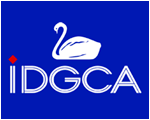
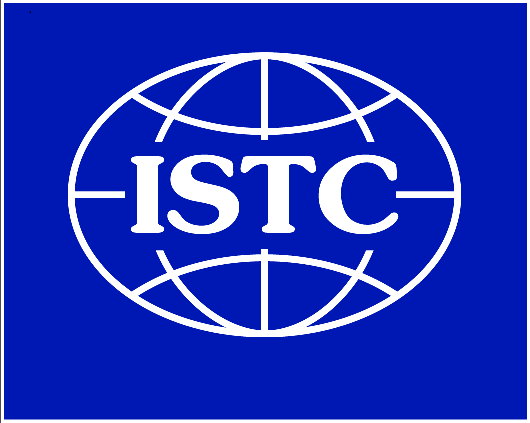
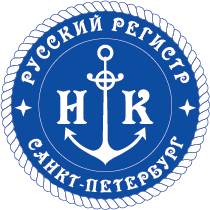
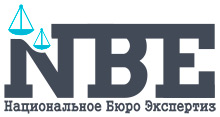



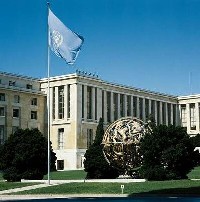 May 25, 2011
At the period of June 20 – 24, 2011 in the Palace of Nations (Geneva) will take place the 39th session of the Subcommittee of experts of UNECE on transportation of dangerous goods.
May 25, 2011
At the period of June 20 – 24, 2011 in the Palace of Nations (Geneva) will take place the 39th session of the Subcommittee of experts of UNECE on transportation of dangerous goods.
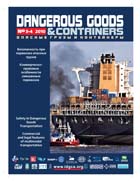 May 24, 2011
At the first days of June the next issue of magazine “Dangerous Goods & Containers” will be published. You can read in this issue about the following:
May 24, 2011
At the first days of June the next issue of magazine “Dangerous Goods & Containers” will be published. You can read in this issue about the following: